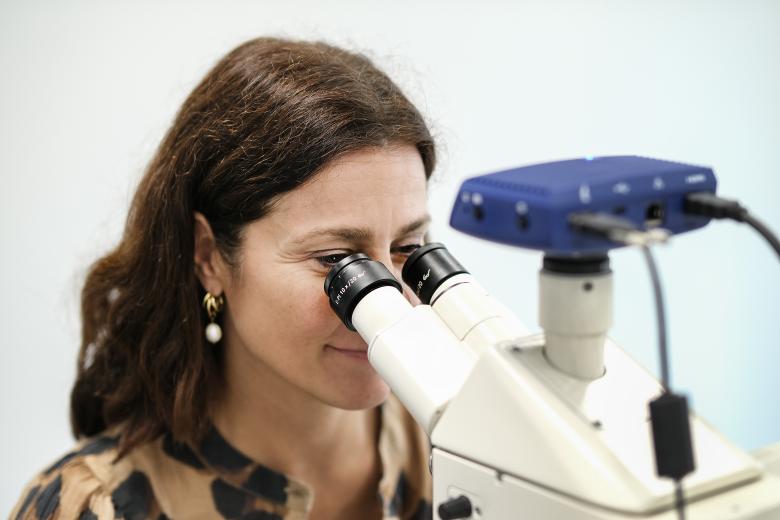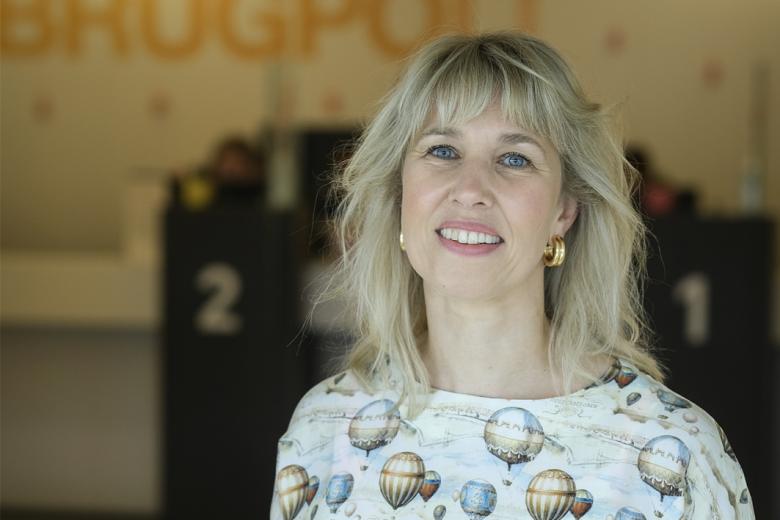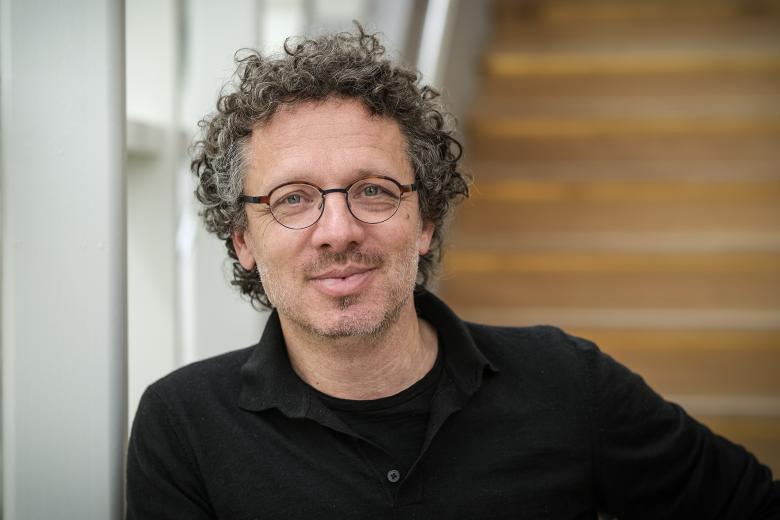The microbiota is an important key in cancer treatment
On February 8, 2024, Ziemons received her PhD from Maastricht University for the dissertation “The role of the gut microbiota in human cancer, the power of an equilibrium". This dissertation is the result of Ziemons' research on the role of the microbiota in cancer – colorectal cancer but also breast cancer. Specifically, Ziemons looked at the effect of chemotherapy on certain bacteria in the gut. She aims to achieve a greater focus on the microbiota in cancer treatment. In doing so, she hopes for better treatment of cancer patients that contributes to a better quality of life. Ziemons remarked: "If we succeed in preventing disruption of the gut microbiota during chemotherapy treatment, people will probably respond better to the treatment and experience fewer side effects. We are not that far yet, but getting to that point is truly my driving force."
Let’s start at the beginning: what is the microbiota?
Ziemons: "The microbiota is the collection of microorganisms such as bacteria, viruses, fungi, and single-celled organisms that every person carries. Together, it forms an incredibly large collection that quickly determines about half a kilogram of body weight. Besides the intestines - which is the focus of my research - it also exists on the skin, in the mouth, and vagina. Each person has its own composition. It is formed, among other things, by what you eat, whether you get outside a lot and whether you have pets. The microbiota plays a crucial role in functions of the human body as digestion, the immune system, energy production, and vitamin synthesis. A microbiota that is in balance can promote your health."
The composition is different in every person. When can you speak of balance?
Ziemons: "We cannot say this in general. There is not one single healthy microbiota. However, we do know that we prefer certain microorganisms to be more or less abundant. In a healthy microbiota, there is a balance between beneficial and less beneficial bacteria, as well as between bacteria with different functions. In fact, for a healthy microbiota, variation in bacteria is also important. Even bacteria that could possibly make us sick are necessary. What counts is the balance. It gets disturbed when bacteria with good properties disappear; giving pathogenic bacteria room to grow. We then suddenly have too many of them and that results in a disturbed microbiota. Besides the presence of specific bacteria, their activity level and whether they perform beneficial functions also matter. The microbiota is a complex thing. Much is still unknown. As researchers, we also still only know a small part of it. That is precisely what makes it so fascinating to me. There is still a lot to discover!"
How did you get into microbiota research?
Ziemons: "The microbiota influences many processes in the body and interacts with the immune system. There is a direct link between the microbiota and inflammation, which plays a role in many diseases. During cancer treatment, inflammation is often a problem. When I thought about chemotherapy - a systemic therapy that affects the entire body - I thought, 'this must have an effect on the microbiota.' And if so, it subsequently affects many other processes. I was immediately convinced that the microbiota must be an important key in cancer treatment and so this topic should receive more attention. If we can prevent disruption of the microbiota, we can optimize how patients respond to chemotherapy and minimize its side effects. I truly hope that I can eventually translate my research into clinical practice to achieve this for patients."
What exactly did you research?
Ziemons: "In my doctoral research, one of the things I am looking at is the effect of chemotherapy on certain bacteria in the gut in cancer patients during therapy. We want to understand the interaction between chemotherapy and these bacteria. The idea of chemotherapy is that it affects fast dividing cells. However, bacteria are also fast-dividing cells; so they are also affected during therapy. We think that chemotherapy is one of the stimuli that causes a disrupted microbiota. This can make patients even sicker. The therapy can lead to inflammation and cause problems with metabolism. These effects we would like to prevent in a cancer patient. My research focuses on modifying the microbiota in such a way that the effects of the chemotherapy are optimized.
We know that the microbiota is easy to influence, for example with prebiotics (these are the nutrients, the food for the bacteria), with probiotics (these are good bacteria that you can ingest) and with poop transplantation1 . If we can relatively easily influence the microbiota and improve the quality of life of patients, it's clear that we need to take action."
How did you conduct your research?
Ziemons: "I conducted part of my research on the Brightlands campus in Venlo. They have an artificial colon model there. In this in vitro model2 , we allowed bacteria from our patients' feces to 'live' and tested chemotherapy on them. This allowed us to observe the effects of chemotherapy on certain bacteria. The model is a physical device, a large cabinet with buttons and tubes that simulate the intestines. We tried to mimic the situation of real patients as much as possible, for example, in determining the correct concentration of chemotherapy and the exact administration timing. The great advantage of a model is that we can keep this well under control. Such a model doesn't eat anything and doesn't walk around. This research has given us the first insights into which bacteria are of interest to us. In addition to researching with the stool of real patients, we also worked with stool of healthy volunteers in this experiment. In addition, among other things, we also used multiple cohort studies3 of cancer patients to analyze the microbiota of a large group of patients."
"We are busy with poop all day, that's a big part of the job. That does give you a very different relationship with it.”
What were some notable moments during your research?
Ziemons: "I conducted the data analysis of the experiments all by myself. A particularly memorable moment for me was when I saw the first figure from the in vitro experiments, showing that chemotherapy indeed had an effect. Until then, it had been a hypothesis. I kept saying: ‘it must be so!’ It's amazing when you see it become reality in the microbiota of a real person. At that moment, I knew for sure: we need to pursue this further. What I also find very special are the patients who are involved in our research. I have great admiration for their enthusiasm to participate in our studies, despite having a severe disease and no direct benefit from our research.
It's also remarkable how much we can learn from feces!
Ziemons: "It is very interesting how much information about a patient we can get from poop. The first time we completed sequencing4 was also a great moment for me. There are many steps involved: enrolling a patient in the study, collecting fecal samples, sending the samples to the lab, storing them in the freezer, thawing them, dividing them into small portions, preprocessing, isolating DNA, and then sequencing. That's months of work and suddenly you see the results, the composition and the exact names of the bacteria: the microbiota profile. Then I think: 'I included these patients two years ago, and now I have results.' That's satisfying. Working with feces all day is a big part of my job. It gives you a very different relationship with feces. I have a very good relationship with it... [laughs]. My husband finds it funny because even when changing my young daughter's diaper, I always check the consistency and colour."
What exactly is the scientific basis to eventually bring to the clinic?
Ziemons: "We now know that there are interactions between chemotherapy and bacteria. That was not known for a long time. This I did not figure out on my own, also thanks to the work of other researchers we know more about the microbiota profile and which bacteria respond to chemo. Some bacteria are sensitive to it and start growing less and others are totally fine with it and start growing very fast. Unfortunately, these are often the bacteria that have unfavourable effects. The next step is that by administering prebiotics, we could prevent the beneficial bacteria from dying. By providing them with a bit more nutrition, we could support them and thus prevent the overgrowth of unfavourable bacteria. Once all the studies are completed, the clinic can move forward with this. That will take some time, but I hope it will become standard care in a few years. It is possible."
1 Poop transplantation is a medical procedure in which stool from a healthy donor is inserted into the intestines of a recipient.
2 In an in vitro model, experiments can be performed with cells, tissues, organs or microorganisms grown in controlled environments outside the organism.
3 Cohort studies follow a specially selected group of people over an extended period of time.
4 Sequencing refers to a process in which fragments of DNA are examined to determine the presence of bacteria.
Also read
-
Fresh air
Newly appointed professor Judith Sluimer (CARIM) talks about oxygen in heart functioning and the 'fresh air' the academic world needs.
-
Huntington’s is a disease you don't carry alone
Mayke Oosterloo is a movement disorders neurologist at Maastricht UMC+ and a researcher at the MHeNs institute of Maastricht University. In the outpatient clinic and various nursing homes in Limburg, she guides and treats patients (and their loved ones) with Huntington's disease.
-
Trauma-Free Care for Sick Children
Drawing blood, inserting an IV, or looking into the ear; even seemingly simple medical procedures can cause anxiety, pain, and stress in children. According to pediatric intensivist Piet Leroy, comfort and trust are just as important as the medical treatment itself. Therefore, he is researching how...